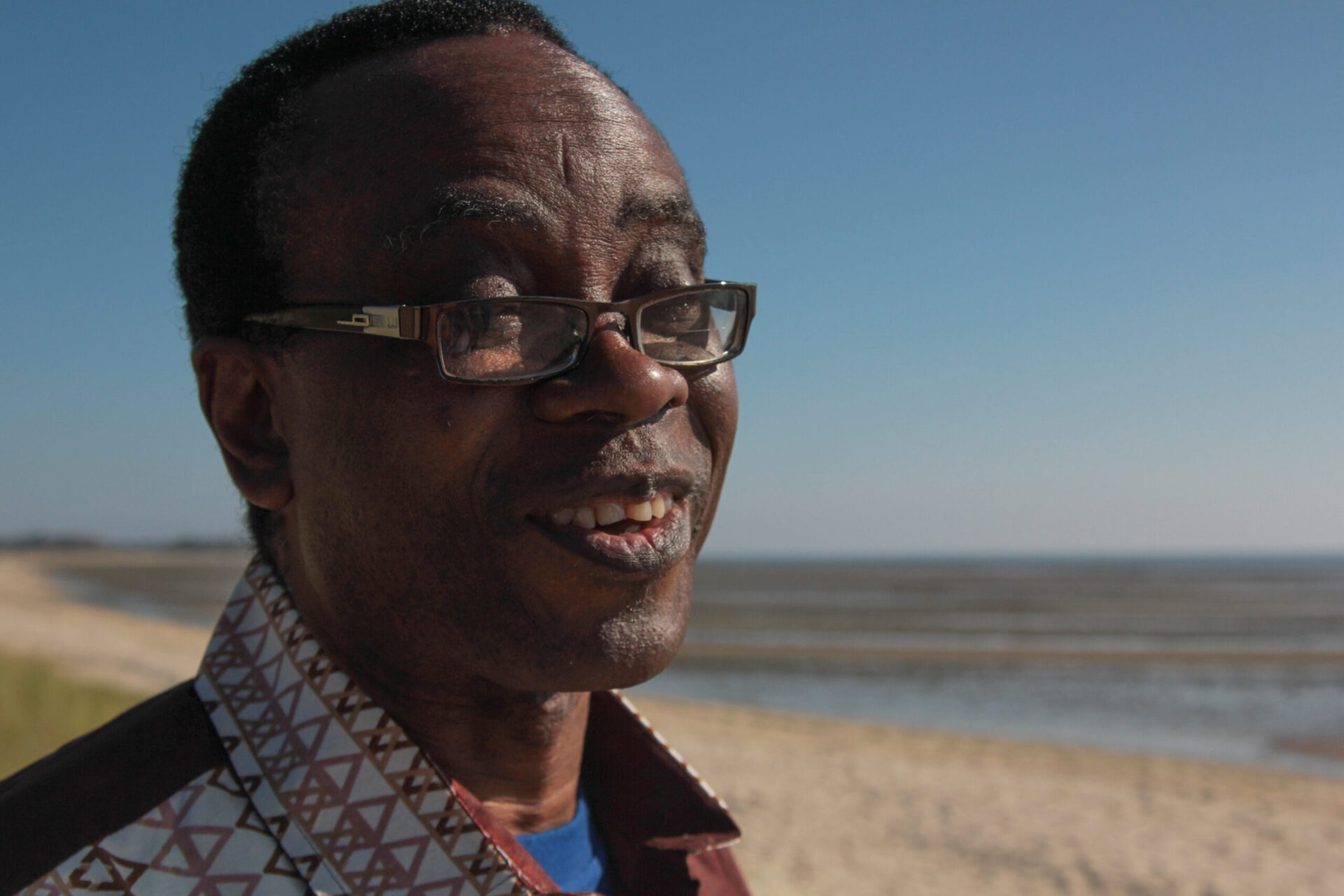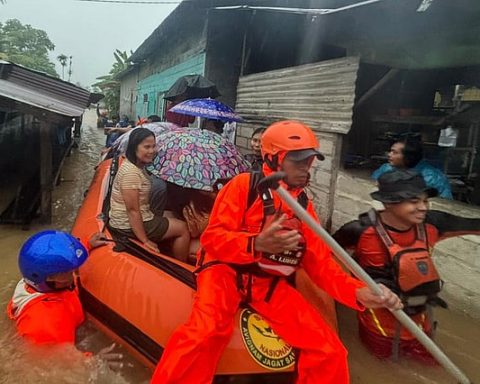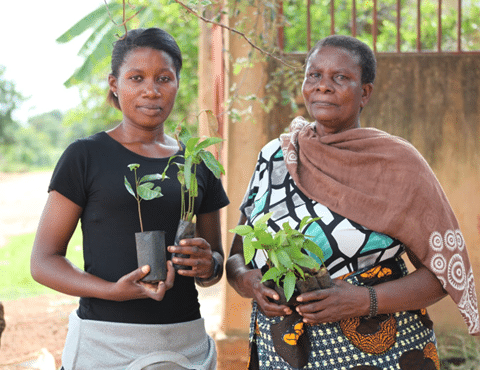THE Director, Health of Mother Earth Foundation (HOMEF), Nnimmo Bassey, says Nigeria and the rest of Africa hardly contribute to the creation of the problem of climate change, but are faced with heightened levels of impacts of the crisis.
Bassey made this known while reacting to Monday’s report by the Intergovernmental Panel on Climate Change (IPCC) which says that the world will reach warming of 1.5c within 20 years even in a best-case scenario of deep cuts in greenhouse emissions.
Join our WhatsApp ChannelAccording to Bassey, a popular Nigerian environmental activist, the report issued by the IPCC clearly shows that climate catastrophe is knocking at the door and is not a thing of the future.
He said, “The sad reality for Nigeria and the rest of Africa is that while we have hardly contributed to the creation of the problem of climate change, we are faced with heightened levels of impacts of the crisis.
“The report states that even if the best actions are taken right away, some of the negative manifestations of climate change are already occurring and will continue for decades to come.”
The HOMEF Director said people should be concerned about the IPCC report and called for immediate actions to mitigate the impact of climate change.
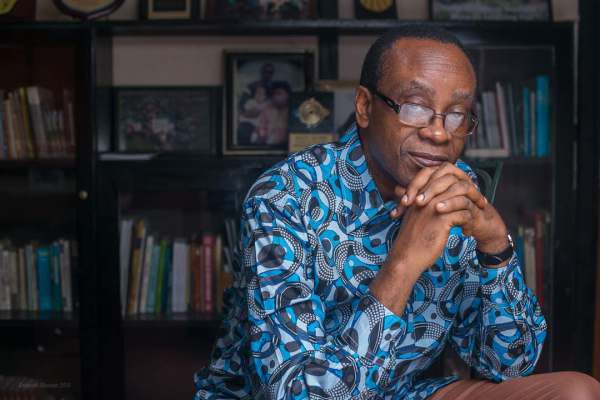
He said, “There will be worse flooding, more coastal erosion and more droughts. Desertification will continue to be a problem and there will be drastic reduction of agricultural productivity. These will combine to create climate-induced migration or displacements. If actions are not taken to mitigate the impacts, we can expect more conflicts, hunger, poverty and other socio-economic malaise.
“The report unequivocally confirms that actions by humans and polluting corporations are driving the climate catastrophe. Sadly, although it is clear that the greenhouse gases causing the problem is emanating from the burning fossils, there is no talk about halting the extraction and burning of the dirty energy resources.”
According to World Bank Group’s Climate Change Knowledge Portal, mean annual temperature is projected to increase between 1.1° C and 2.5° C by the 2060s and 1.4° C and 4.6° C by the 2090s.
Projections indicate that warming will be greater in the northern part of Nigeria.
The annual number of ‘hot’ nights is projected to increase in Nigeria. Projections indicate an increase of 32-60% by the 2060s and 37-74% of nights by the 2090s, with ‘hot’ nights increasing most rapidly in June-August.
There is low to medium confidence in GCM projections for heavy rainfall over West Africa by the end of the 21st Century, but Regional Climate Models (RCMs) indicate an increase in the number of days with extreme rainfall in May and July over West Africa.
In the chat with Prime Business Africa, Bassey stated that Nigeria and other African countries were running out of time as far as climate change action is concerned and should take climate policies seriously.
“Nigeria is enduring extreme flooding and there are talks that Lagos and other coastal towns may be swallowed up by the ocean. We are literally in a critical time as far as climate change action is concerned. Governments across the continent have to take their climate policies seriously and invest in mitigation actions and in building resilience. Such actions includes enhancing the provision of climate-proof infrastructure,” the environmental activist said.
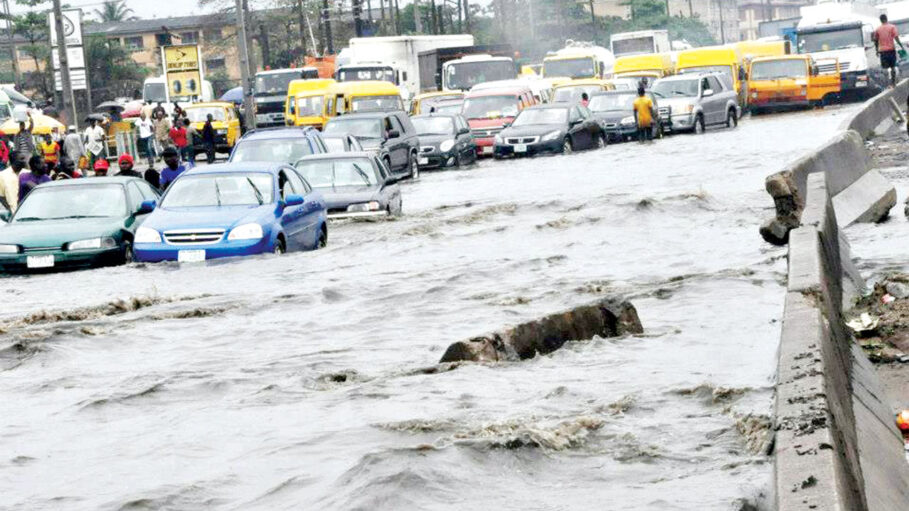
He advised the Federal Government to halt gas flaring, embark on an urgent clean-up of the entire Niger Delta and carry out a just energy transition.
Other necessary actions according to him include halting the search for new fossil fuel resources in frontier and existing fields; pushing for new petroleum resources in important ecosystems such as Okavango Basin in Namibia; and investing in petroleum pipelines such as the one proposed in East Africa expose a lack of recognition of the serious crisis we are all in.
He noted that the IPCC report was very clear about the climate catastrophe, but also suggested actions that would simply lock in the pathways that created the problem in the first place.
Bassey added that “the report recommends carbon capture and carbon removal technologies as a way out of the problem. The idea of sucking carbon dioxide out of the atmosphere and storing them in secure reservoirs is a business idea that clearly at best would only postpone the evil day as no reservoir built by humans can survive forever.
“Is it right to set up such an intergenerational climate time bomb? Carbon capture, carbon removal and net zero emissions are all ways of saying it is okay to keep burning fossil fuels and to keep polluting the atmosphere because we can take care of the problem. These are all false notions that allow the status quo but will not help in the short or long run.”
The IPCC report put forward five scenarios based on varying levels of CO2 and other greenhouse gas emissions. Under the high and very high emissions scenarios outlined in the report, global heating is predicted to reach 3.6C and 4.4C above pre-industrial levels respectively, by the end of the century.
The report stated that even in the intermediate scenario global warming of 2C would be extremely likely to be exceeded.
- Editor
- Editor
- Editor
- Editor
- Editor


